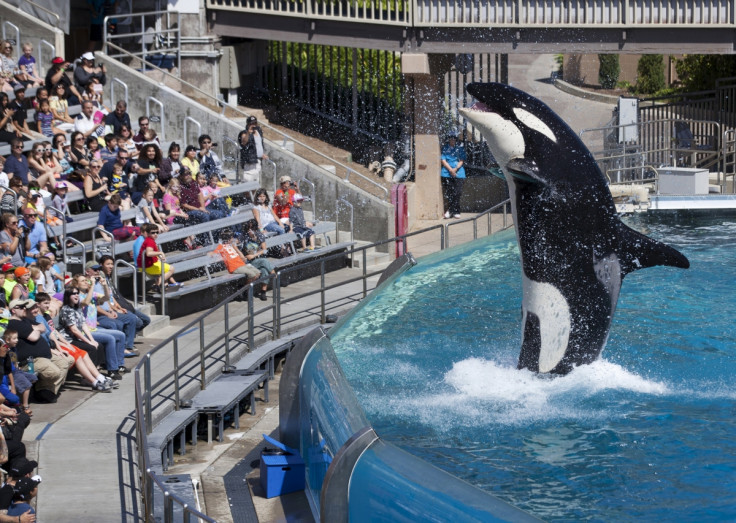SeaWorld attempts to refloat its image but what happens to the orcas now?

In an announcement that was both inevitable and necessary – but, based on the comments greeting the news, not sufficient to quell an enormous and growing list of critics – SeaWorld San Diego declared it will end its circus-style orca performances by 2017. While phasing out its theatrical shows may sound like progress, Peta isn't popping any champers corks – not yet, anyway.
It's good that the orcas at the park will no longer be jumping through hoops, but ultimately, it's a cheap token gesture, since it's unclear if there are plans to move them out of the small tanks that they're currently confined to.
What the animals at SeaWorld and other marine parks need is not a public relations change but a literal sea change. They need to be moved to coastal sanctuaries, where they can finally be free.
Orcas are huge marine mammals, inherently unsuited to captivity and there is research that shows many die in captivity at a younger age of the average life span of their wild counterparts. We believe they're deprived of the environmental enrichment necessary to their physiological and psychological well-being as well as the opportunity to make choices or express the most basic types of natural behaviour.
In the open ocean, orcas travel up to 100 miles each day, feeling the currents, seeing other marine life, enjoying family, and raising and teaching their offspring. In aquaria, on the other hand, they're allegedly confined to cement tanks, which cause the reverberations from their sonar to bounce off the walls. Orcas typically spend 80% to 90% of their time under the water's surface – which is nearly impossible for them in captivity.
Of course, SeaWorld is not alone in housing highly intelligent, sensitive animals for profit. In 2011, people across Britain were justifiably outraged when video footage of Anne, the last elephant used in a UK circus, was circulated, showing a handler as he kicked, beat and stabbed her with a pitchfork – even though she was held by chains.
Anne was finally allowed to retire in the wake of a public outcry but other fully sentient animals, including lions, tigers, camels and zebras – all a long way from home – are still crammed into boxcars and hauled around from one venue to the next. Like orcas, they too are denied their most fundamental needs, never having an opportunity to roam over large distances, socialise with their own kind, forage or make independent choices about how to go about their business. In short, they're never able to live.
Society has learned so much about wild animals since the first time they were torn from their families, exploited and forced to perform in a tawdry circus or put on display in a barren cage in a menagerie. The majority of us now no longer believe that it's right to keep them caged, which means we must keep the momentum going by telling others why we don't support exploitative institutions as well as how we can help protect animals in their native habitats. In the end, we humans can go home, while animals used for entertainment are forced to serve as live exhibits and props until the day they die.
Mimi Bekhechi began working for Peta (People for the Ethical Treatment of Animals) in 2007. As Peta UK's director, Bekhechi is responsible for overseeing Peta UK's campaigns and marketing as well as its education and media departments. Bekhechi previously served as the organisation's operations manager and coordinated Peta UK's campaign work in her subsequent role as manager of special projects.
© Copyright IBTimes 2025. All rights reserved.






















